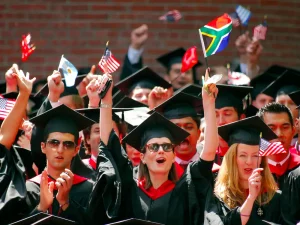- 4 January 2024
- 284
Navigating Uncertainty: Harvard MBA Graduates’ Strategies Amid Recruitment Challenges

Introduction
In the realm of business education, Harvard Business School (HBS) stands as an emblem of excellence and a gateway to promising career opportunities. However, the fluctuating tides of the economy can significantly influence the job prospects of even the most prestigious graduates. This article delves into the trends and analysis of Harvard MBA job placement amidst economic downturns, examining how these cycles impact graduates’ trajectories.
Understanding the Harvard MBA Landscape
Harvard MBA graduates traditionally enter diverse sectors, including finance, consulting, technology, and entrepreneurship. The school’s reputation and robust curriculum often lead to high employment rates. However, economic downturns present unique challenges.
Impact of Economic Downturns
During economic contractions, job markets tighten, and industries reevaluate their hiring strategies. The fallout from such downturns can trickle down to even elite institutions like Harvard Business School.
Immediate Effects on Recruitment
In the initial phase of a downturn, recruitment pipelines may shrink, affecting the number of job offers extended to graduates. Companies, facing uncertain financial futures, may adopt a cautious approach, reducing hiring quotas or delaying recruitment cycles.
Industry-Specific Variations
Different industries respond uniquely to economic downturns. For instance, during a recession, finance and consulting firms might scale back hiring, while technology companies, driven by innovation, might continue recruiting, albeit more selectively.

Adaptation and Career Shifts
Harvard MBAs often display resilience and adaptability. In response to changing market conditions, some graduates may pivot towards different industries or opt for entrepreneurial ventures. The downturn might serve as a catalyst for innovation and the pursuit of unexplored opportunities.
Historical Trends and Patterns
Analyzing historical data reveals intriguing trends. For instance, during the 2008 financial crisis, while certain sectors reeled under the impact, others remained relatively resilient. This dichotomy highlights the complexity of the relationship between economic downturns and MBA job placement.
Strategies for Mitigation
Harvard Business School equips its students with resources and strategies to navigate challenging job markets. The school’s career services, alumni network, and support mechanisms play pivotal roles in assisting graduates during economic turbulence. Additionally, fostering a culture of adaptability and resilience prepares students to face uncertainties head-on.
The Post-Downturn Outlook
Economic recoveries herald a renewed optimism in the job market. As economies rebound, companies regain confidence, and hiring activities typically pick up. The agility and skills nurtured at HBS position graduates favorably to seize opportunities in the post-downturn landscape.

Conclusion
Economic downturns exert palpable influences on Harvard MBA job placement, necessitating adaptability and strategic navigation from graduates. The interplay between economic cycles and career trajectories underscores the importance of resilience, agility, and leveraging institutional support in charting successful professional paths. Harvard Business School’s legacy endures not only in the excellence of its education but also in its graduates’ ability to weather storms and emerge stronger, contributing meaningfully to the business world. This analysis serves as a reminder that while economic downturns pose challenges, they also present avenues for innovation, transformation, and the cultivation of a resilient mindset an invaluable asset in any career journey.

